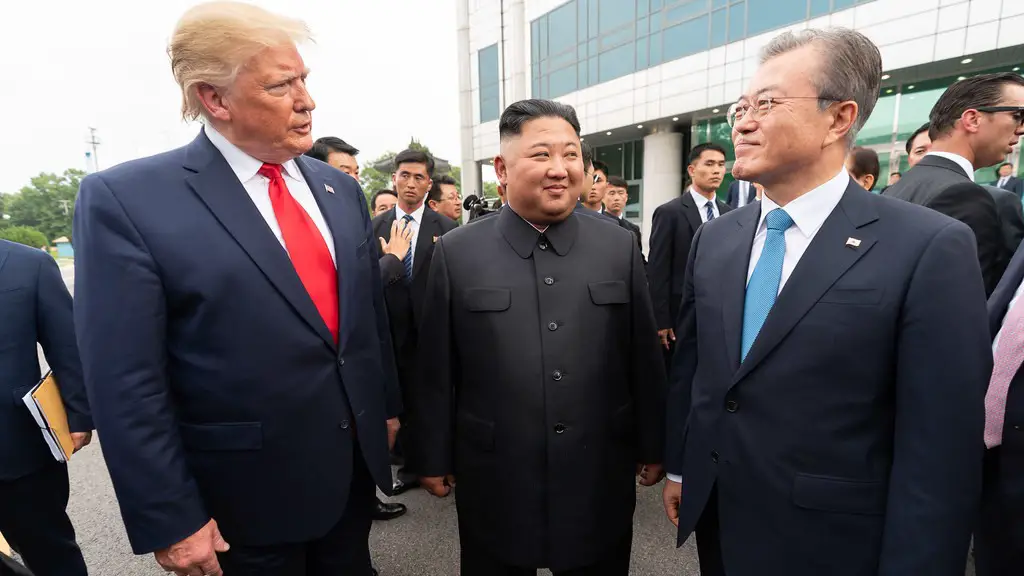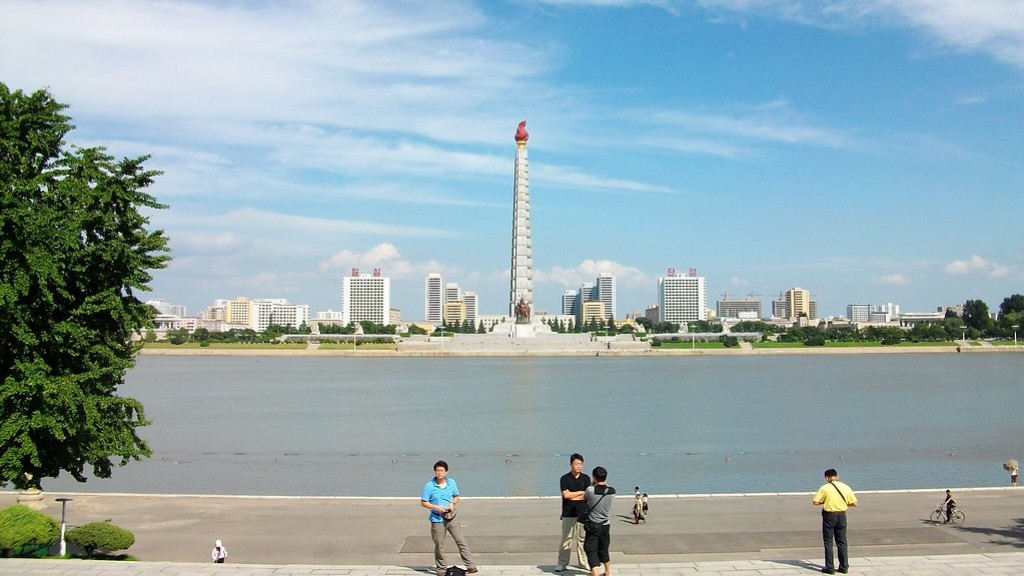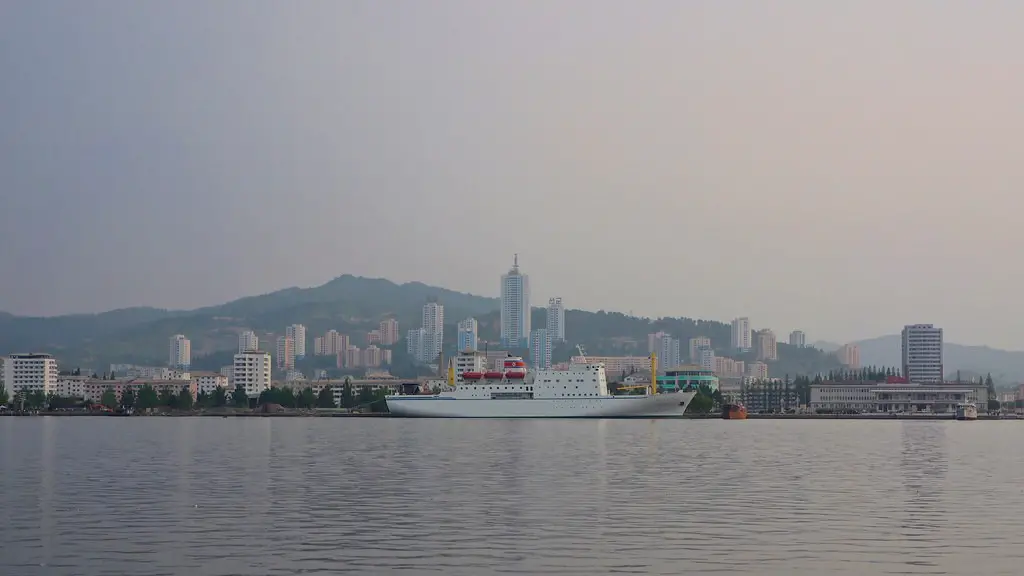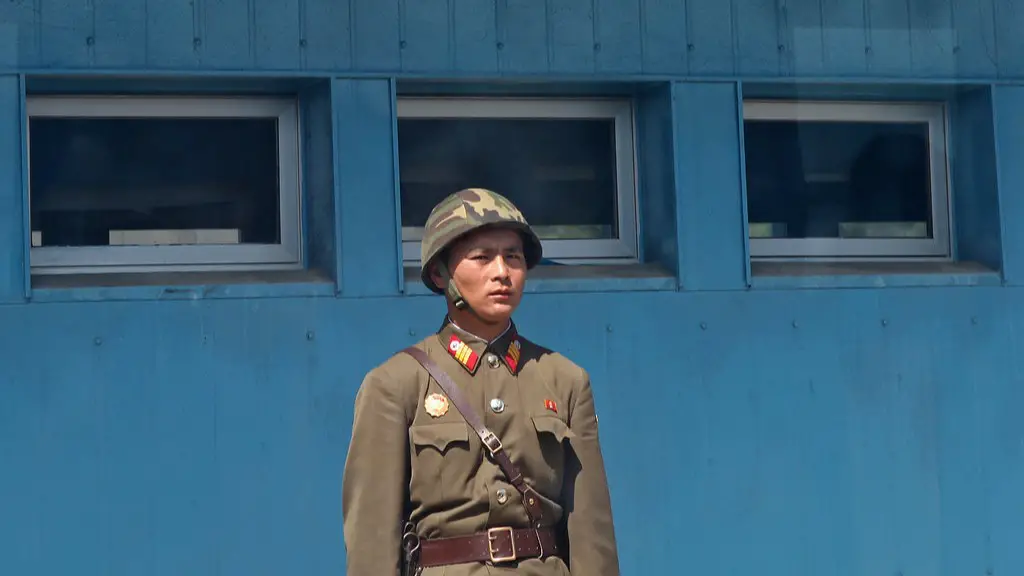The Korean peninsula has been divided since 1945, when the two countries North and South were created due to the Cold War. Ever since then, the two countries have maintained tension, creating a near frozen conflict that has been present for 70 years. However, there has been a period of relative calm that has given hope to many that a unified Korea may become a reality, but what are the chances of this? Can North and South Korea ever be unified?
In recent years, both governments have made tentative steps to improving diplomatic ties, through conversations and exchanges between officials. South Korean President Moon Jae In and North Korean leader Kim Jong-Un have conducted three summits over the course of the last year, with Moon becoming the first South Korean President to ever step foot in Pyongyang. This has led to easing of travel restrictions and a thawing of relations, offering a chance for unifying the two Koreas.
North Korea’s harsh military and economic policies have kept the two countries distinct from each other and the populations largely separate. Despite the growing economic benefits, more than a third of South Koreans oppose reunification, according to one survey in 2018. North Koreans who decided to relocate south also face a number of challenges, such as unemployment and language barriers, while adjusting to a far different culture.
The potential costs of reunifying both countries are large, as analysts estimate it would cost around $150 billion a year for the same length of time as East Germany’s post-unification transformation. But if both leaders can come to an agreement, the potential benefits to both sides could be significant. Firstly, North Korea’s resources and manpower could be utilized to develop South Korea’s economy and industry. The unified North-South infrastructure and transportation system could open up more economic opportunities as well, allowing businesses to become more competitive.
In addition, reunification could rid the Korean nation of the Cold War relic and begin a brave new period for both countries. Unifying the two nations could promises a lasting and stable peace to the Korean peninsula and its people, finally ending centuries of war and strife. By having their own government and unified foreign policy, Koreans can become more engaged in international affairs and reciprocate more with other countries.
There are, however, a number of uncertainties that still remain in the reunification process. One of the key questions is how a unified Korea would be governed, and if North Koreans would be willing to accept the South’s democratic system. The main task would be to build trust and confidence between North and South and overcome the different political views.
Political Impediments
Regime stability has been a long-standing impediment to reunification, as North Korea has developed a closed state system that remains a critical factor to unifying the Korean peninsula. South Korean citizens and the international community are split in terms of its opinion towards North Korea, as many view the current regime as oppressive with a history of human rights violations. In addition, its nuclear policy has caused tension with other nations, making it difficult for South Korea to take the first step towards reunification.
The international community also has an important role to play, as the U.S., China and Russia wield significant influence of the process. Although the United Nations Security Council has imposed a number of sanctions on North Korea, they have been largely ineffective in deterring it. Furthermore, its international allies China and Russia have been reluctant to approve a resolution by the UN to impose additional sanctions.
Experts have also noted that a unified state could open up more opportunities for economic growth, but it could also lead to increased security risk. A unified country could result in a power struggle between the South and North’s social and economic systems, as well as cause a shifting of regional dynamics. There are also concerns of political and cultural differences between the two nations that could have social ramifications and unrest.
Developments on Human Rights in North Korea
The human rights situation in North Korea has been a critical factor in the unification process. Reports suggest that the North Korean government inflicts harsh imprisonment and torture of both citizens and foreigners. This has been highlighted by surrounding international powers, with the U.S. implementing a number of sanctions on the North Korean government and those in contact with them.
Despite the criticisms and sanctioning, the North Korean government has made attempts to improve its human rights record. It has improved prison conditions and is allowing international agencies to inspect its prisons. In 2015, the UN’s Office of the High Commissioner for Human Rights established a field office in Pyongyang, becoming the first office to be based in North Korea. This has provided a chance for international organizations to provide more effective mechanisms to support the enforcement of human rights.
The issue is further complicated by the fact South Korea faces criticism for human rights abuses and for not doing enough to support the reunification process. The South Korean government has focused more on economic development and security, neglecting the multitude of issues and problems for those who are attempting to reunify. The South Korean government has also been criticized for its military exercises with the U.S., exacerbating the tensions between both countries.
The Role of the International Community
The international community has a critical role in the reunification process. U.S.s commitment to North Korea’s security has largely failed, as it continues to impose sanctions and increase pressure on the regime. It has also implemented the ‘maximum pressure’ policy to force Pyongyang to denuclearize, forcing both sides to the brink of conflict and making reconciliation difficult.
On the other hand, China has remained a critical figure for the nation and has proposed a more open approach to the situation. Chinese President Xi Jinping suggested a ‘peaceful and gradual’ process, as well as a “freeze-for-freeze” approach, in which North Korea would restrict its nuclear activities if the U.S. and South Korea scaled down their military exercises. However, this approach has been largely unheeded.
Russia has also been heavily involved in negotiations, as it seeks to gain influence in a potentially unified Korea. Russia has remained firmly opposed to UN sanctions on North Korea, as well as maintaining cordial relations with Pyongyang, with Putin meeting with North Korean leader Kim Jong-Un in April 2019.
The U.N. also holds a key role in the prospect of reunification, as it was the first major international body to recognize South Korea almost 70 years ago. The U.N. has also been actively promoting dialogue and has increased the number of diplomats and aid workers in the region. These developments suggest that the U.N. is playing a key role in providing the necessary support and resources for a unified Korea.
Implications for South Korea and Northeast Asia
The reunification of the Korean peninsula will have a profound impact on South Korea and the greater region of Northeast Asia. Firstly, the substantial economic costs for both nations would pose a significant challenge. South Korea is currently the 11th largest economy, while North Korea is ranked the 83rd-largest. Integration of the two economies could take several years and require significant resources, while North Korea faces international sanctions that inhibit its ability to fully integrate into the South.
The reunification process also could create ripple effects throughout the region. As North Koreas current ruler Kim Jong Un appears to be less hostile towards the South, some analysts are already looking ahead towards the potential of greater cooperation between North Korea and its neighbours. This could increase the overall security and stability of the region, as well as provide a level of economic growth. South Korea stands to gain the most from the unification, as it could open up more investment opportunities for its enterprises, technological companies and infrastructure.
The reunification of the Korean peninsula is one of the most complex geopolitical processes ever faced. Both North and South Korea have been preparing for the process, but significant challenges remain. There is still uncertainty regarding how a unified Korea would be governed, how North Koreans would accept South Korea’s democratic system, and the overwhelming cost of reunification. However, there is still hope that the two countries can come together and reunify in a way that brings peace and economic stability to the region.
The Role of Civil Society
The role of civil society in promoting reunification has become increasingly important. An influential civil movement has been growing in South Korea, where citizens have demonstrated their support for reunification. The ‘One K rally’ brought together tens of thousands of citizens in Seoul earlier this year, where they called for the unification of the two countries. Similarly, NGOs have been utilizing social media to promote peace and understanding between the two countries, with some organizations having even entered North Korea to provide humanitarian aid.
Religious denominations also play a key role, as some believe Christianity could bridge individuals in the Korean peninsula. North Korea is known to be one of the most oppressive countries in the world towards religion, but since 2011, international donors have seen a spike in reported religious activities in the country. These trends suggest that North Koreans are becoming more aware, and possibly open to religious ideologies, offering potential opportunities for reunification.
Apart from that, international advocacy groups have been vigorously campaigning for reunification of both countries. Amnesty International and other human rights organizations have been calling for the denuclearization of the Korean peninsula and peace talks in order to bring the two countries together. As reunification of the Korean peninsula could be one of the most far-reaching peace efforts, it has attracted the interest of many international organisations, business, and civilians.
Conclusion
Ultimately, the future of the Korean peninsula lies in the hands of its political leaders, but it is also important for the international community and civil society to play their role in building peace and opening up opportunities for economic advancement. The reunification can be a complex process and there remain many unresolved issues, but it is a step that has to be taken in order to bring security and stability to the region. Whether this becomes a reality in the near future remains to be seen, but it is clear that the right conditions, support and commitment need to be in place in order for reunification to be achieved.





